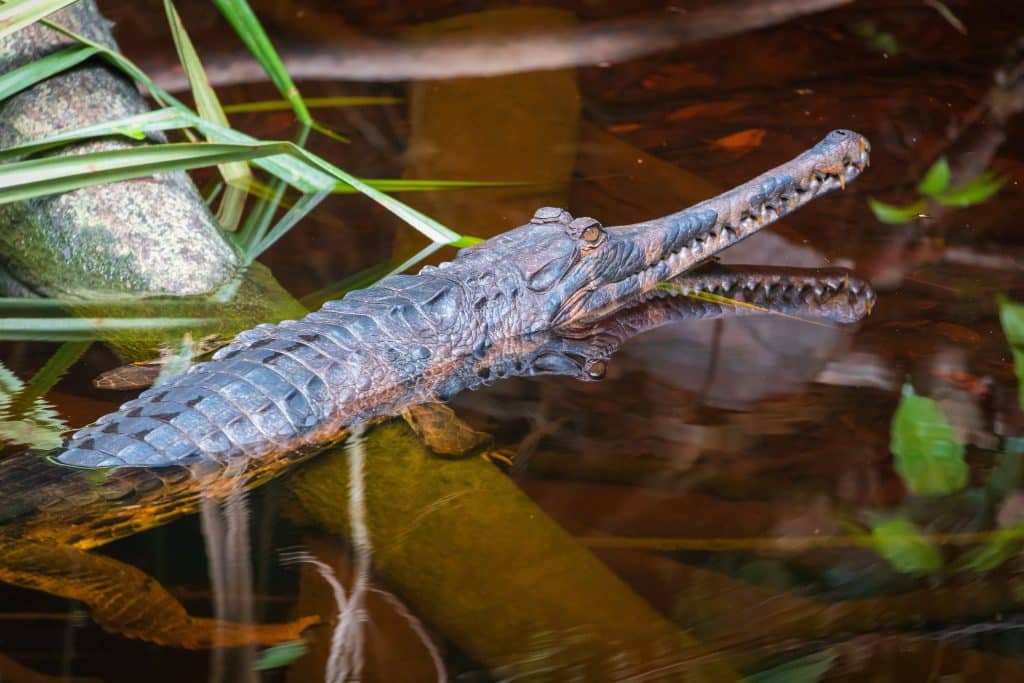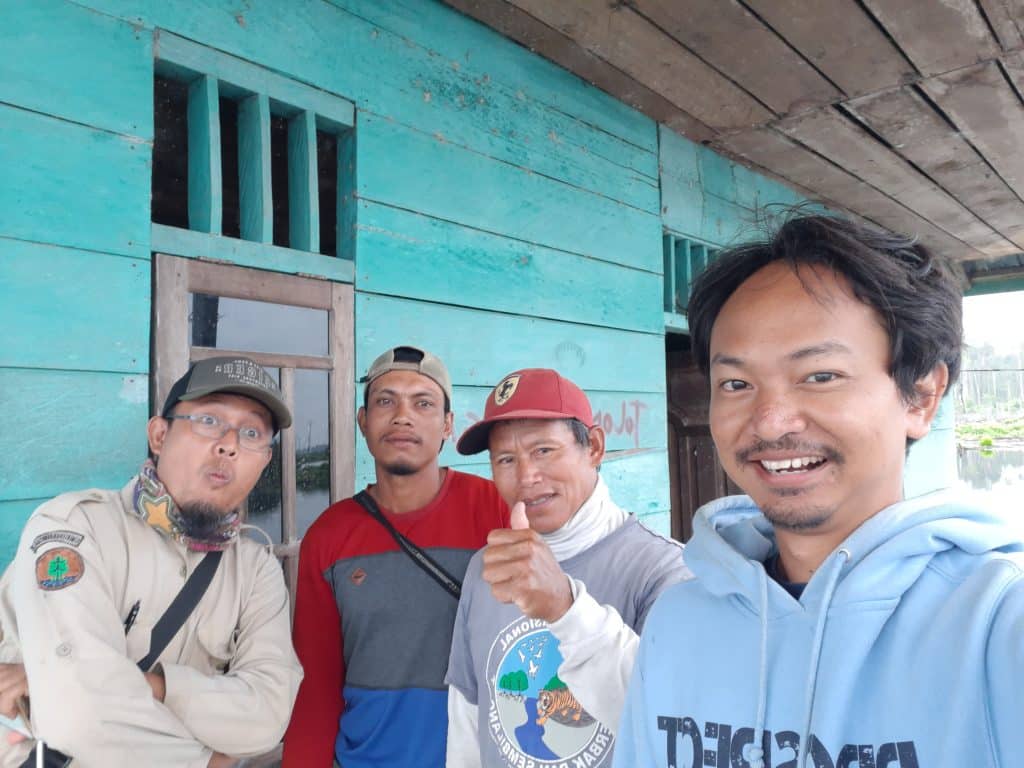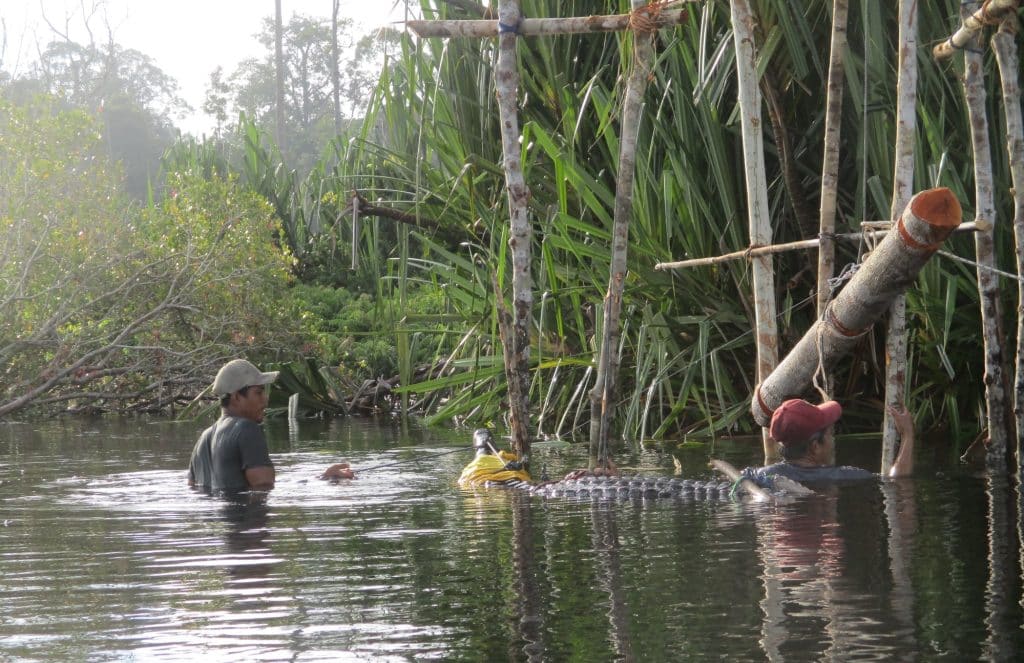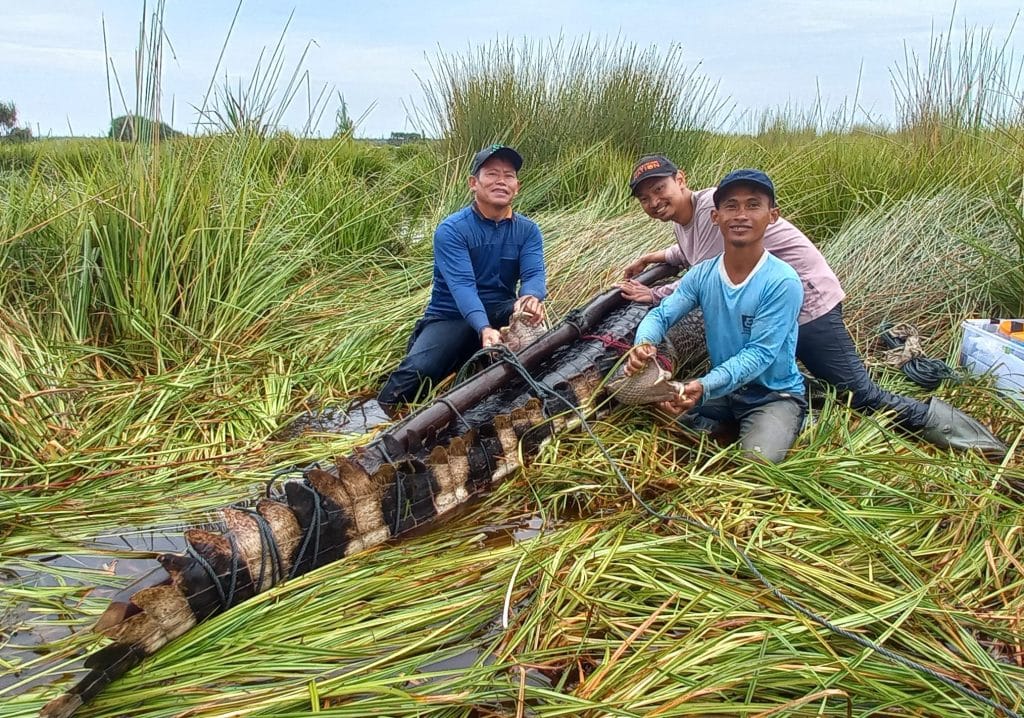Raising his oar, Herdhanu Jayanto cleared a fallen branch from the narrow bend, the early morning peace periodically jolted by the calls of hornbills and macaques. With the route clear, his teammate tugged the engine’s cord and it roared back to life. Their journey began before the sun first raised an eyelid, and as the boat cut through a flurry of insects along the brackish river, Herdhanu knew it’d be six more hours before reaching the trapping site. But long excursions into remote wetlands are expected when searching for the tomistoma, an endangered and largely unknown crocodile found in Indonesia. With support and skills received from WCN’s Rising Wildlife Leaders Scholarship Program, Herdhanu is helping his small team make big strides for this crocodile’s conservation.
Not much beyond basic ecology has been learned about tomistomas, also known as false gharials or Sunda gharials, since their discovery in 1837. Roughly 2,400 of these giant crocodiles remain, and are likely decreasing due to substantial habitat loss. Indonesia has lost approximately 74 million acres of forest in the last two decades, with much of that deforestation occurring in Sumatra. Berbak National Park is considered the species’ last stronghold in Sumatra, so in 2020, Herdhanu and his colleagues founded KONKLUSI, which focuses on protecting tomistomas and other overlooked species like Siamese crocodiles, Malaysian giant turtles, and Attenborough’s long-beaked echidnas in Berbak and neighboring parks. But to create the most impact for tomistomas, Herdhanu had to expand his skill set.
In 2021, Herdhanu participated in WCN’s Scholarship Program, which supports the higher education and professional development of local conservationists. The Scholarship Program empowers rising wildlife leaders like Herdhanu by removing financial barriers and providing them with learning and mentorship opportunities to advance their knowledge and experience. This support was invaluable for Herdhanu, whose scholarship granted him access to new field training, allowed him to provide for his family during his studies, and recently helped him earn his degree in environmental science.
Using this new expertise, Herdhanu leads KONKLUSI’s efforts to track tomistomas within Berbak’s swamp forest. Venturing deep into the park, the team stays in empty fisher huts or ranger stations for weeks at a time, performing early morning and late-night surveys. They set harmless traps throughout the river system, and when a tomistoma is captured, Herdhanu attaches a GPS tag to track its movements upon release. This is the first comprehensive range assessment for tomistomas, providing Herdhanu’s team with information to manage their remaining population and estimate migration routes. It’s patient work, given the species’ shy and clever nature, and some expeditions end with no taggings. But KONKLUSI has successfully tagged five tomistomas since 2022 and uncovered new insights about their range requirements—crucial data that they share with park staff. By developing a long-term partnership with Berbak’s management, KONKLUSI’s data will inform their strategies to better protect tomistomas and their remaining habitat.
Herdhanu credits his recent professional growth to his WCN scholarship, and is continuing his educational journey to further increase his skills. With more holistic study, he and KONKLUSI will bolster safeguards for tomistomas and their vulnerable ecosystem, one long boat ride at a time.





